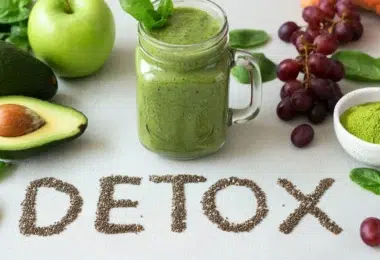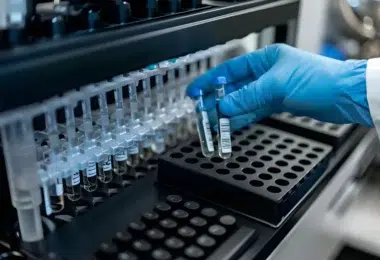
Kratom and Yoga: A Holistic Approach to Wellness
Introduction: The Synergy of Kratom and Yoga In today’s fast-paced world, people are increasingly turning...
View PostYes, kratom is entirely legal from Myrtle Beach to Charleston, and throughout the entire state of South Carolina.
While some states have implemented a range of regulations on kratom, from complete prohibitions to age-specific restrictions, South Carolina maintains a stance of no regulations on kratom.
Kratom’s legality in South Carolina is undisputed at the moment, which means that kratom users can continue to enjoy a variety of products and strains. However, we’re paying attention to trends across the state to know what you might expect to see in the future.
In South Carolina, a legislative attempt to regulate kratom by classifying it as a Schedule IV controlled substance failed to pass in 2023. Despite having initial support with 39 legislators backing the bill, it stalled in the House Judiciary Committee and did not advance.
This inaction reflects a lack of consensus on controlling kratom, contrasting with other states that have imposed stricter bans.
Understanding where kratom is legal is essential. This is a map highlighting the regions where the use and possession of kratom are permitted.
While kratom is fully legal in South Carolina, it’s crucial to note that laws vary significantly across the US. When traveling, it’s important to ensure that you do not transport kratom into states where it is prohibited.
States where kratom is prohibited:
States with local restrictions:
States with age restrictions:
Various states have adopted the Kratom Consumer Protection Act (KCPA), which sets specific regulatory standards for kratom products. At Golden Monk, we endorse these regulations as they promote beneficial oversight while preventing the negative impact of outright bans.
Such regulation enhances product consistency, boosts educational initiatives, supports research on kratom’s benefits and risks, and helps remove disreputable vendors from the market.
Why do Golden Monk and the AKA support regulations like the KCPA? We advocate for these rules because they safeguard kratom users in crucial ways, such as:
Regulations facilitate the implementation of stringent quality assurance and safety protocols, ensuring kratom products are uncontaminated and unadulterated.
This level of quality control protects consumers from manufacturing errors, ensuring products are free from contaminants and adulterants.
The kratom community is a strong proponent of increased scientific research and testing to better understand kratom’s effectiveness, usage guidelines, and overall impact on users. While some existing studies highlight its benefits, much of the available data is anecdotal.
A push for more rigorous research could validate kratom’s safety and effectiveness through empirical evidence.
By regulating how kratom is marketed, consumers gain confidence in their buying choices. Currently, buyers must navigate a maze of vendor claims and check the credibility and standards of each provider independently. Regulated marketing would ensure clearer, more reliable information is available, guiding consumers towards safer, more informed decisions.
Furthermore, Golden Monk supports age restrictions on kratom sales, agreeing that it should only be available to adults over 18, as is commonly stipulated in KCPA laws.
Charleston, Columbia, and a few other South Carolina cities have a handful of brick-and-mortar shops that offer kratom. However, the best deals and the highest quality kratom are found online.
From cultivation to processing, and from manufacturing to distribution, all Golden Monk products are subjected to extensive third-party testing that exceeds typical industry standards.
Golden Monk provides South Carolinians with the best quality kratom products through both brick-and-mortar shops and online.
Check out some of our most popular products in the state!
Golden Monk’s Kratom Gummies each contain 10mg of premium kratom extract. They are especially popular with kratom users who are looking for an easily accessible method of taking kratom.
Our Kratom Capsules contain 500mg of premium kratom powder. You can purchase 250, 500, or 1000 capsules made from our loose-leaf kratom varieties, including Green Maeng Da, Red Maeng Da, White Maeng Da, Green Malay, Red Bali, White Bali, Red Borneo, Green Borneo, White Borneo, Red Indo, and Red Thai.
Golden Monk’s Maeng Da Kratom comes in green vein, red vein, or white vein varieties of the popular horned leaf strain of the Mitragyna speciosa plant.
Golden Monk’s White Sumatra Kratom comes from Sumatra in Indonesia and is sold in quantities of 250g to 1000g (1kg). It is similar to White Vein Bali and White Vein Borneo.
Our Red Borneo Kratom is one of our most popular strains nationwide, coming in 250g, 500g, or 1000g (1kg) quantities.
Kratom is a plant that is native to Southeast Asia, in particular countries like Indonesia, Malaysia, and Thailand. The leaves of the kratom plant have been used for centuries by people in these regions, typically for their purported benefits related to both relaxation and energy–depending on strains and serving sizes.
Kratom’s legal status varies throughout the US, with some states imposing bans or restrictions, while others, like South Carolina, permit its use without regulation. Check out the map, above, for more detailed information.
Kratom production involves drying the leaves of the Mitragyna speciosa tree and grinding them into a fine powder. Certain brands also produce kratom in liquid extracts and other forms.
Good Manufacturing Practice (GMP) refers to FDA-enforced regulations that ensure dietary products are consistently produced and controlled according to quality standards. Compliance with GMP is vital for kratom producers to guarantee product safety, particularly as kratom typically enters the U.S. in a raw form that may not meet established food safety standards.
Potential effects from using kratom can include nausea, constipation, or dizziness, which vary based on serving size and individual tolerance.
While some individuals find that kratom promotes relaxation and aids sleep at certain serving amounts, its effects are highly subjective and can differ widely among users.
At Golden Monk, we are proud to be an audited member of the American Kratom Association cGMP (Current Good Manufacturing Practices) program. You can review our Certification of Analysis to learn more about how we maintain consistent, high-quality standards in our manufacturing facilities.

Introduction: The Synergy of Kratom and Yoga In today’s fast-paced world, people are increasingly turning...
View Post
In the search for natural wellness solutions, kratom has emerged as a powerful ally in...
View Post
Kratom’s popularity throughout the U.S. isn’t slowing down, but it’s also safe to say kratom...
View PostPRODUCT CATEGORIES
Must be of legal age to purchase these products. The manufacturer and distributors of these products assume no liability for the misuse or misrepresentation of these products. Keep out of reach of children and pets. Avoid contact with eyes. We do not ship to the following US states, counties, and cities where kratom is banned: Alabama, Arkansas, Indiana, Rhode Island, Vermont, Wisconsin, Sarasota County (FL), Union County (NC), and San Diego (CA).
We conduct marketing to promote our products and services, we may also market, promote, or offer for sale Products that are manufactured, provided, or developed by third-party entities. Pursuant to our Privacy Policy & Terms of Use.
These statements have not been evaluated by the FDA. The products offered for sale on this site are not intended to diagnose, treat, cure, mitigate or prevent any disease and/or affect any structure or function of the human body.
By clicking yes you also confirm that you have read and agree to GoldenMonk's Terms of Service and Privacy Policy and Goldenmonks’s service provider’s terms of service and privacy policy.